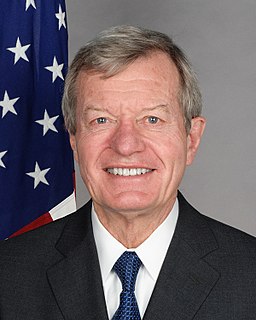A Quote by Barry Gardiner
Leaving the E.U. with no trade deal is the worst possible option. It will condemn British exporters to the full range of tariffs and barriers that apply under WTO rules.
Related Quotes
When China got into the WTO, that allowed it to sell into any other country within the WTO - not just the United States - at the lowest tariffs that country offered. And the other countries could sell into China at the lowest tariffs that China offered. The problem, right off the bat, was that China had much higher tariffs than everywhere else, so the U.S. and Europe in particular got the short end of that stick.
By all means, let's have free trade and no trade barriers and a common market. But where did it all suddenly become about our own economic and political destiny being surrendered to Brussels with agendas that arguably have very little to do with the interests of the British people and British voters?
Feudalism is an economic system where a few people own all the land and the others have no option but to be serfs on such a feudal estate. We now condemn feudalism. We condemn not merely the feudal lords but we condemn the whole structure of rules that sustained feudalism. I am asking people to think similarly about the world economy.
One thinks that one is winning when we slap tariffs or introduce barriers to imports from another country, and we think we win. But you lose when you export because the other countries are going to raise tariffs as well. They're going to introduce barriers as well. So you win with one hand and you lose with the other.
There's a whole range of areas that we'll be looking at, so I'm not at this very early stage going to specify any particular areas. As you will know, there will be a limit to how far we can go in terms of a formal free trade agreement until we've actually left the European Union. I think there is much that we [with Donald Trump] can do in the interim in terms of looking at how we can remove some of the barriers to trade in a number of areas.
Tariffs are in the end taxes. And somebody has to pay that tax. I think one thing people are forgetting is that trade disputes are two-sided. When the United States imposes tariffs on a partner like Canada, there is always a possibility that Canada will say that's not fair and retaliate. And at that point, you have to ask the question, - which U.S. industry will suffer because the Canadians retaliated against it?


































